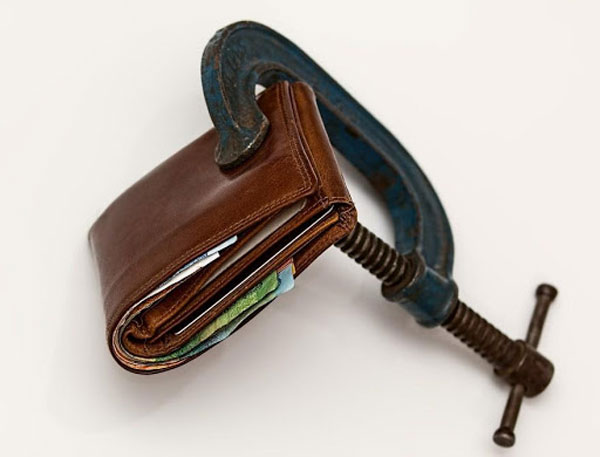
Going through a bankruptcy filing is never the most pleasant experience in one's life, but it's even worse when you consider the effect it could have on your child's well being. As a parent, providing for your child should always be your top priority, but how are you supposed to do that when you’re at a point where you can’t even provide for yourself?
Child Support
The situation starts to look even more dire if you’re a divorced parent paying your ex-spouse child support. In most cases (especially if your ex isn’t the particularly understanding type), failure to make your child support payments means you’re forfeiting your visitation rights, but how does a bankruptcy play into this? Can it protect you in the event you’re unable to make your child support payments?
Debt Classification

Well, let’s start by describing a bit about how bankruptcy classifies your debts, including child support. Generally speaking, any debts you have at the time of a bankruptcy filing are divided into two groups: one is dischargeable debt, which you can be let off the hook for as part of a bankruptcy. On the other hand, you also have nondischargeable debts, which you’re stuck paying off whether you file for bankruptcy or not.
In general, most of the debt obligations you have will be classified as dischargeable debts in the event of a bankruptcy, regardless of whether you file a Chapter 7 or Chapter 13 bankruptcy. Liabilities that typically fall into this category include credit card debt, medical bills, and mortgages.
On the other hand, child support firmly falls into the nondischargeable debt bucket: you’re stuck with it no matter what. In fact, child support is even further classified as a priority debt, meaning that it’s among the first debts repaid to creditors as part of the bankruptcy process. Repayment of child support is even prioritized over income tax debt and any damages you’ve been ordered to pay as restitution for a crime of some kind.
Automatic Stay
Those of you who are at least somewhat familiar with bankruptcy proceedings may be aware of something called an automatic stay, which puts a freeze on collection actions. Whether it will help you in regards to child support depends on the type of bankruptcy you file for because a Chapter 7 bankruptcy won't classify child support payments as a part of the bankruptcy estate, and you can still be sued or otherwise penalized for missing child support payments.
Chapter 13 bankruptcy does offer a bit more protection, though not much. If you’re filing for Chapter 13, the creditor (your ex-spouse) would need to seek and be granted a court motion to lift the stay and sue you for missed child support payments. If you miss any payments after filing for Chapter 13 bankruptcy, the odds of that motion being granted rise pretty dramatically.
What about the court decisions?
Now, as to the custody question, the answer is that bankruptcy in and of itself is not enough to cause a court to change the terms of a custody arrangement. Their concern is ensuring the welfare of the children involved, and any decision they make in that regard will be made with that goal in mind.
However, if your financial woes will in some way interfere with your ability to provide a safe and nurturing environment for your child, that may become a factor in any decision a court makes about changing your custody arrangement. The court’s priority is making sure you can feed and clothe your children, and keep a roof over their heads. If you can’t do that, the judge may decide your ex would provide a healthier environment for the kids.
Generally speaking, the only way a custody arrangement will be changed like that is if your ex decides to pursue it with the courts. The filing itself won’t do anything to change the terms of the agreement, at least until it gets brought to the attention of the courts. Once that happens, however, the child’s quality of life is going to be the central deciding factor.
Conclusion
Of course, if you have any doubts, it’s probably best to consult a bankruptcy attorney who could provide you with their expert opinion and help guide you through the treacherous waters of the filing process. Bankruptcy law can at the same time be a confusing, frustrating, and disheartening process, but with expert guidance and perspective from groups like the Leinart Law Firm, you can find your way through the maze and come out the other side in a better place.



























